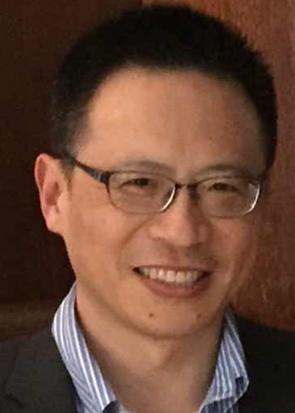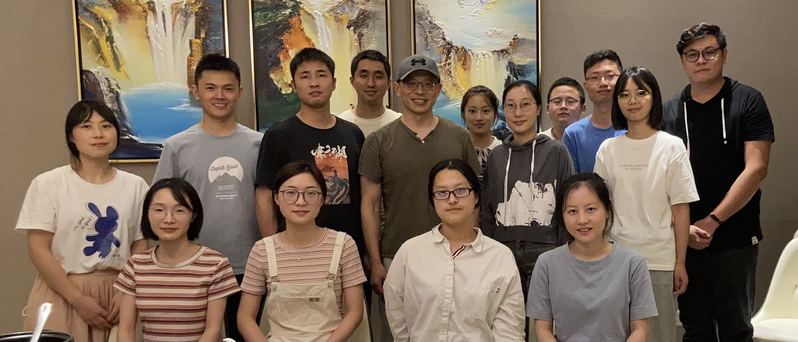Protein Degradation and Cancer Biology
Principal investigator
Name:
Yong CangProfessor , PhD, Professor
Position:
Affiliation:
School of Life Science and Technology
Honor:
Education Background:
- 1996-2001, Albert Einstein College of Medicine, PhD
- 1988-1992, Fudan University, BS
Working Experience:
- 2017-now, SLST, ShanghaitTech University, Professor
- 2010-2017, Zhejiang University, Professor
- 2007-2011, Sanford Burham Medical Research Institute, Assistant Professor
- 2001-2007, Columbia University, Postdoc
Group Introduction
Research Area:
Protein Degradation; Molecular Glue; Cancer Immunology
Research Interests:
We have been studying the role of protein ubiquitination in development and diseases using cell biology and mouse genetic tools, and investigating how small molecule glue degraders hijack E3 ubiquitin ligases to control cancer cell proliferation and modulate immune cell activation. We are also employing the customized CRISPR-Cas9 library screen in cultured cells and in xenografts to understand how cancer cells escape immune elimination.
Research Achievement
Cancer is a leading cause of human death. Cancer arises when somatic mutations override intracellular and immunological control of cell proliferation. The ultimate goal of my laboratory research is to exploit the vulnerability of cancer and develop novel therapeutics stopping the uncontrolled growth and spreading of cancer cells. Our therapeutic development is built upon my 20 years of research expertise in the biology of the Cullin Ring Ligase 4 (CRL4) ubiquitin ligase, particularly CRL4CRBN, and its application to targeted protein degradation. We have designed CRBN-engaging chemical libraries and screened for novel molecular glue-type degraders of cancer-driving oncoproteins, thus providing a new discovery modality to expand current oncology drug pipelines. Meanwhile, we have developed mouse models to investigate the mechanism underlying the anti-tumor immunity of lenalidomide and its analogues, which have recently been established as molecular glues to redirect CRBN for their clinical effectiveness. Our early success in this field has led us to examine genetic mutations that control cancer sensitivity to T cell-mediated cytotoxicity. Using customized CRISPR-Cas9 library screening in various tumor models, we have identified several pathways that modulate tumor growth by regulating tumor infiltrating lymphocytes, in a manner dependent or independent on the PD-1 immune checkpoint. Given the interdisciplinary and translational nature of our work, we closely collaborate with synthetic and medicinal chemists as well as computational and structural biologists.
Representative Publications (*First Author, # Corresponding Author)
- 1. Zhang Zefan*; Liu Yang*; Cang Yong#; .Loss of SGK1 supports metastatic colonization in hepatocellular carcinoma by promoting resistance to T cell-mediated immunity.JOURNAL OF HEPATOLOGY. Jan 2025.
- 2. Liu YF(刘艳芬)#*; Bai JY(白洁云); Li D(李栋); Cang Y(仓勇)#; .Routes to Molecular Glue Degrader Discovery.TRENDS IN BIOCHEMICAL SCIENCES. 2025.
- 3. Liu YF(刘艳芬)#*; Wang ZS(王张顺); Cang Y(仓勇)#*; .Mini PROTACs: N-End Rule-Mediated Degradation on the Horizon.TRENDS IN BIOCHEMICAL SCIENCES. 23 Sep 2023.
- 4. Geng CL, Chen JY, Song TY, Jung JH, Long M, Song MF, Ji T, Min BS, Lee JG, Peng B, Pu YS, Fan HJ, Hao P, Zhou Q, Shin EC, Cang Y..Lenalidomide bypasses CD28 co-stimulation to reinstate PD-1 immunotherapy by activating Notch signaling.CELL CHEMICAL BIOLOGY. August 2022. 29(8):1260-1272.
- 5. Song, Tian-Yu*; Long, Min*; Zhao, Hai-Xin*; Zou, Miao-Wen; Fan, Hong-Jie; Liu, Yang; Geng, Chen-Lu; Song, Min-Fang; Liu, Yu-Feng; Chen, Jun-Yi; Yang, Yu-Lin; Zhou, Wen-Rong; Huang, Da-Wei; Peng, Bo; Peng, Zhen-Gang; Cang, Yong#; .Tumor evolution selectively inactivates the core microRNA machinery for immune evasion.NATURE COMMUNICATIONS. 01 Dec 2021. 12(1).
- 6. Liu, Jiye*; Hideshima, Teru; Xing, Lijie; Wang, Su; Zhou, Wenrong; Samur, Mehmet K.; Sewastianik, Tomasz; Ogiya, Daisuke; An, Gang; Gao, Shaobing; Yang, Li; Ji, Tong; Bianchi, Giada; Wen, Kenneth; Tai, Yu-Tzu; Munshi, Nikhil; Richardson, Paul; Carrasco, Ruben; Cang, Yong; Anderson, Kenneth C.#; .ERK signaling mediates resistance to immunomodulatory drugs in the bone marrow microenvironment.SCIENCE ADVANCES. 2021. 7(23).
- 7. Hou, Lidan*; Zhao, Jie; Gao, Shaobing; Ji, Tong; Song, Tianyu; Li, Yining; Wang, Jingjie; Geng, Chenlu; Long, Min; Chen, Jiang; Lin, Hui; Cai, Xiujun; Cang, Yong#; .Restriction of hepatitis B virus replication by c-Abl-induced proteasomal degradation of the viral polymerase.SCIENCE ADVANCES. Feb 2019. 5(2).
- 8. Liu, Jiye*; Song, Tianyu*; Zhou, Wenrong*; Xing, Lijie; Wang, Su; Ho, Matthew; Peng, Zhengang; Tai, Yu-Tzu; Hideshima, Teru; Anderson, Kenneth C.#; Cang, Yong#; .A genome-scale CRISPR-Cas9 screening in myeloma cells identifies regulators of immunomodulatory drug sensitivity.LEUKEMIA. Jan 2019. 33(1):171-180.
- 9. Song, Tianyu*; Liang, Shenghui; Liu, Jiye; Zhang, Tingyue; Yin, Yifei; Geng, Chenlu; Gao, Shaobing; Feng, Yan; Xu, Hao; Guo, Dongqing; Roberts, Amanda; Gu, Yuchun#; Cang, Yong#; .CRL4 antagonizes SCFFbxo7-mediated turnover of cereblon and BK channel to regulate learning and memory.PLOS GENETICS. Jan 2018. 14(1).
- 10. Li, Gaofeng*; Ji, Tong; Chen, Jiang; Fu, Yufei; Hou, Lidan; Feng, Yan; Zhang, Tingyue; Song, Tianyu; Zhao, Jie; Endo, Yoko; Lin, Hui; Cai, Xiujun#; Cang, Yong#; .CRL4(DCAF8) Ubiquitin Ligase Targets Histone H3K79 and Promotes H3K9 Methylation in the Liver.CELL REPORTS. 2017. 18(6):1499-1511.
- 11. Gao, Shaobing*; Geng, Chenlu; Song, Tianyu; Lin, Xuanru; Liu, Jiye; Cai, Zhen; Cang, Yong#; .Activation of c-Abl Kinase Potentiates the Anti-myeloma Drug Lenalidomide by Promoting DDA1 Protein Recruitment to the CRL4 Ubiquitin Ligase.JOURNAL OF BIOLOGICAL CHEMISTRY. 2017. 292(9):3683-3691.
- 12. Jin, Shengfang#*; Chen, Jiang; Chen, Lizao; Histen, Gavin; Lin, Zhizhong; Gross, Stefan; Hixon, Jeffrey; Chen, Yue; Kung, Charles; Chen, Yiwei; Fu, Yufei; Lu, Yuxuan; Lin, Hui; Cai, Xiujun; Yang, Hua; Cairns, Rob A.; Dorsch, Marion; Su, Shinsan M.; Biller, Scott; Mak, Tak W.#; Cang, Yong#; .ALDH2(E487K) mutation increases protein turnover and promotes murine hepatocarcinogenesis.PROCEEDINGS OF THE NATIONAL ACADEMY OF SCIENCES OF THE UNITED STATES OF AMERICA. 2015. 112(29):9088-9093.
- 13. Liu, Jiye*; Ye, Jia; Zou, Xiaolong; Xu, Zhenghao; Feng, Yan; Zou, Xianxian; Chen, Zhong; Li, Yuezhou; Cang, Yong#; .CRL4A(CRBN) E3 ubiquitin ligase restricts BK channel activity and prevents epileptogenesis.NATURE COMMUNICATIONS. 2014. 5.
- 14. Yamaji, Sachie*; Zhang, Mingjun; Zhang, Jing; Endo, Yoko; Bibikova, Elena; Goff, Stephen P.#; Cang, Yong#; .Hepatocyte-specific deletion of DDB1 induces liver regeneration and tumorigenesis.PROCEEDINGS OF THE NATIONAL ACADEMY OF SCIENCES OF THE UNITED STATES OF AMERICA. 2010. 107(51):22237-22242.
|




